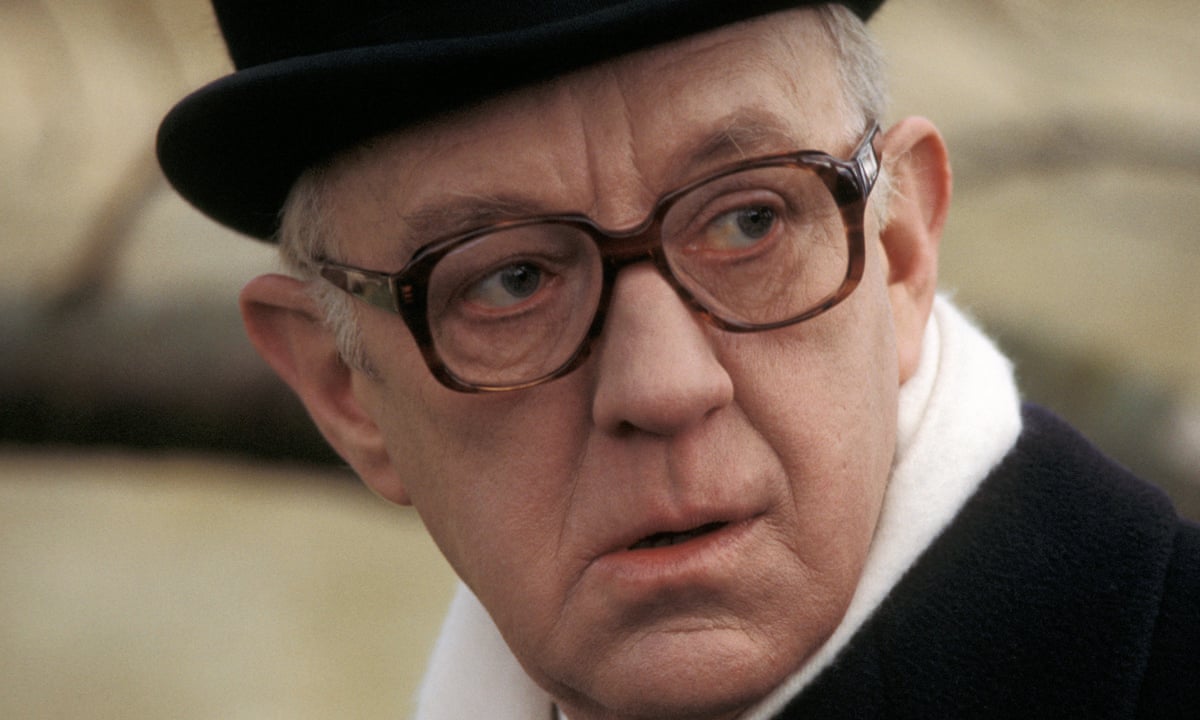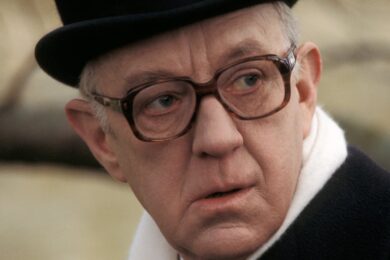I first met George Smiley when I was 21. The tap on my shoulder happened in suburban Essex when, home for Christmas, I watched Sir Alec Guinness’ sublime performance as the spymaster in the 1979 BBC adaptation of the John Le Carré novel, Tinker Tailor Soldier Spy. This complex tale of espionage, human frailty and betrayal, played out in the morally grey and stodgily brown 70s Britain that lingered into my childhood in the 80s, blew me away and I’ve been obsessed ever since.
The series of seven episodes was directed by Jonathan Powell and was broadcast between 10th September and 20th October 1979. The opening scene, in which various bigwigs of British intelligence gather for a meeting in a nondescript room in ‘The Circus’ (Le Carré’s name for both his fictionalised British intelligence and its HQ) is a dialogue-free and patient work of genius that sets the tone for the slow-moving yet gripping hours to follow. George Smiley is brought in from semi-retirement to flush out the Soviet mole in the highest levels of the service. Under suspicion himself, Smiley must work out whether Percy Alleline (‘Tinker’, played by Michael Aldridge), Bill Haydon (‘Tailor’, Ian Richardson), Roy Bland (‘Soldier’, Terence Rigby) or Toby Esterhase (‘Sailor, Bernard Hepton) is working with the Soviet enemy.
When the mole is revealed as being Bill Haydon, Peter Guillam refers to him as having been a hero to his generation – “my kind at least, a kind of antiquated English patriot. No matter what kind of dirt we have to do, it’s for England”. But of course the traitor – and the 1960s Cambridge Five spy he was based on, Kim Philby – was no patriot or hero at all, at least not to Britain. His loyalties were strictly to Mother Russia, in the form of the USSR, and more specifically to Moscow Centre, the greatest rivals of Le Carré’s Circus in the “great game” of Cold War espionage. That rather lackadaisical term for Anglo-Russian conflict goes back to British Intelligence officer Arthur Connolly in 1840, though it was popularised by Rudyard Kipling’s novel Kim in 1901. It is used by certain foolish characters in Tinker, Tailor, usually those who, safe behind their desks in Whitehall, do not have to suffer the game’s realities first-hand. Smiley, of course, would never utter such nonsense. He’s played ‘the game’ at close quarters and he knows very well how lethal the stakes are for everyone concerned. It is Smiley who is the “antiquated English patriot”, not his quarry.
Quiet Smiley might be, but Guinness’ genius in the role is carrying the cold determination and lengths to which he will go to capture a traitor – and avenge a friend. Agent Jim Prideaux was sent to Czechoslovakia by the Circus’ old boss, Control, on a nearly-fatal wild goose chase to learn the identity of the mole among the top brass. “A bullet in the back is quite a high price, even in your world” Smiley is told by Lacon, a Whitehall intelligence type who lives well above the fray. “Two bullets actually” replies Smiley, as he would never disrespect Prideaux’ imprisonment and torture by the Russians by getting such a painful detail wrong.
Smiley’s propriety here reflects his own vulnerabilities. Haydon had an affair with Smiley’s wife, the faithless Lady Anne, on the orders of his Russian handler, Moscow Centre’s legendary spymaster Karla. So Smiley must face his “failings as a husband” too – a terrible sacrifice that serves to emphasise his loyalty to his work. Smiley’s patriot…



